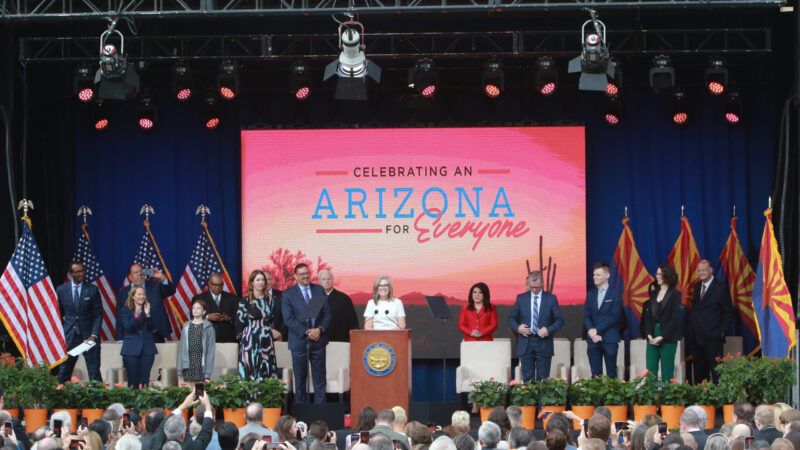Arizona's Battle Against School Choice for Special Needs
State government officials deploy scare tactics against families of special needs students seeking alternatives.

School choice opponents warn that students with disabilities lose their federal protections when they enroll in private schools. "It's important for Arizona families to be aware of the rights they give up when they leave the public school system," said the state's Attorney General Kris Mayes. But the latest special education scandal casts further doubt on whether these rights help some parents at all. The details reported by The Arizona Republic are chilling and the district's response is infuriating.
"This child has been through hell," said Sandy Zelenka, recounting how her autistic second grader, Levi, was treated by Peoria Unified School District's autism program before transferring to a private school in 2020. Levi was restrained for long periods in an unfurnished closet-sized room until Zelenka was alerted by an assistant.
Six other families have come forward to The Arizona Republic with more recent allegations, including unexplained physical markings such as a black eye, bruising, and a bloody cut. They demanded answers but were stonewalled by district officials, who deny any abuse or mishandling by employees.
But school employees said "children are not safe in the program, and problems have been long-standing," The Arizona Republic reported. They also accuse the district of concealing records from parents.
Two of the families have already switched their kids to private schools and can use Arizona's Empowerment Scholarship Accounts (ESA) to help pay for tuition and other services. Under the program, students with disabilities get extra funding based on their needs.
While school choice opponents boast of robust federal protections, the reality for students in Peoria Unified—and public schools across the country—is much different.
The federal Individuals with Disabilities Education Act (IDEA) guarantees a free and appropriate public education for students with disabilities. When it was first signed into law in 1975 (then known as the Education for All Handicapped Children Act), public schools routinely discriminated against disabled students.
IDEA requires schools to develop an Individualized Education Program (IEP) in consultation with parents that describes a student's needs, sets goals, and establishes what services the school will provide. However, school officials have the final say over what's included in an IEP, and their incentive—to comply with federal mandates at the lowest possible cost—is at odds with parents' desire to get the best education possible.
Parents also have little recourse if they don't agree with an IEP's provisions or how it's carried out by the school. They can either use IDEA's due process procedures to get an administrative hearing—which can be time-consuming and costly—or enroll their child in a private school and sue the school district for reimbursement, which has financial risks and upfront costs that many can't afford.
Suffice it to say the entire special education apparatus is rigged against students. IDEA only provides accountability if parents have the time, financial means, and doggedness to navigate a highly bureaucratic system that's tilted against them. But even then, nothing is guaranteed—California's Irvine Unified School District spent over $1 million in legal fees fighting a single family just to make a point to other parents.
In 2021–2022, parents made 10,806 mediation requests and filed 35,650 complaints against public schools nationwide, indicating that many families aren't satisfied with their special education services. Private school choice programs in states such as Arizona, Florida, and Indiana allow parents to opt out of this byzantine system altogether, and it's working: There are now at least 137,000 students with disabilities in the U.S.—including over 10,000 in Arizona's ESA program—using school choice to access options that better fit their needs.
There are many bad arguments against school choice, but fear-mongering about students losing their federal protections is the most ridiculous. Special education is terribly broken, and school choice is the only thing that actually tips the scale in the favor of parents.


Show Comments (14)